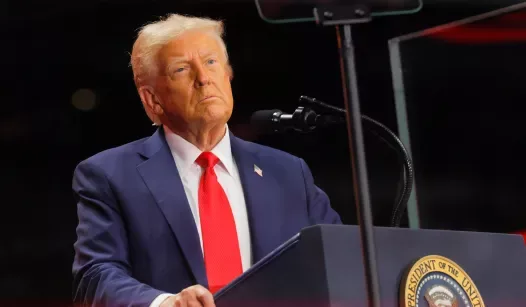The recent unveiling of the Kirk Memorial has sparked significant discussion about its implications for the American right. Erika Kirk and Donald Trump, two figures emblematic of today’s conservative movement, embody the evolving spirit of the Republican Party and its base.
The Kirk Memorial serves not just as a tribute to a prominent figure but also as a lens through which we can examine the current state of American conservatism. It highlights the values, beliefs, and motivations that drive the right-wing agenda in the United States.
Erika Kirk, an influential voice in conservative circles, has become a symbol of grassroots activism and the populist tendencies that have gained traction among Republican voters. Her advocacy reflects a broader shift towards a more assertive and sometimes contentious approach to politics, one that resonates deeply with many Americans who feel disenfranchised by traditional political structures.
In parallel, Donald Trump’s influence on the Republican Party cannot be overstated. His presidency marked a seismic shift in the party’s identity, steering it towards a more combative and unapologetic stance on issues ranging from immigration to trade. Trump’s ability to connect with everyday Americans, often through a blend of charisma and controversy, has redefined what it means to be a conservative in today’s political landscape.
The Kirk Memorial serves as a reminder of the values that unite these figures: a commitment to individual freedom, economic opportunity, and a skepticism of government overreach. However, it also raises questions about the future direction of the Republican Party. As the political climate continues to evolve, how will the party reconcile its traditional principles with the populist fervor that has taken root?
Moreover, the memorial underscores the importance of community and local engagement in shaping political narratives. Both Kirk and Trump have demonstrated that grassroots movements can have a profound impact on national politics. Their ability to mobilize supporters and engage with constituents at a personal level has reinvigorated the political landscape, encouraging more Americans to participate in the democratic process.
As we reflect on the significance of the Kirk Memorial, it becomes clear that it represents more than just a tribute; it encapsulates the complexities and contradictions of modern conservatism. The American right is at a crossroads, grappling with its identity and the expectations of its supporters.
The interplay between traditional conservative values and the newer, more populist sentiments will likely define the party’s trajectory in the coming years. As the 2024 elections approach, the Kirk Memorial stands as a testament to the ongoing evolution of the Republican Party and the enduring influence of figures like Erika Kirk and Donald Trump.
In conclusion, the Kirk Memorial is not just a physical structure; it is a reflection of the deep-seated beliefs and aspirations of a significant segment of the American populace. It invites us to consider what the future holds for the Republican Party and how it will navigate the challenges ahead. As political dynamics continue to shift, the lessons learned from this memorial and its associated figures will undoubtedly play a crucial role in shaping the landscape of American politics for years to come.
